[Source: Labor Watch]
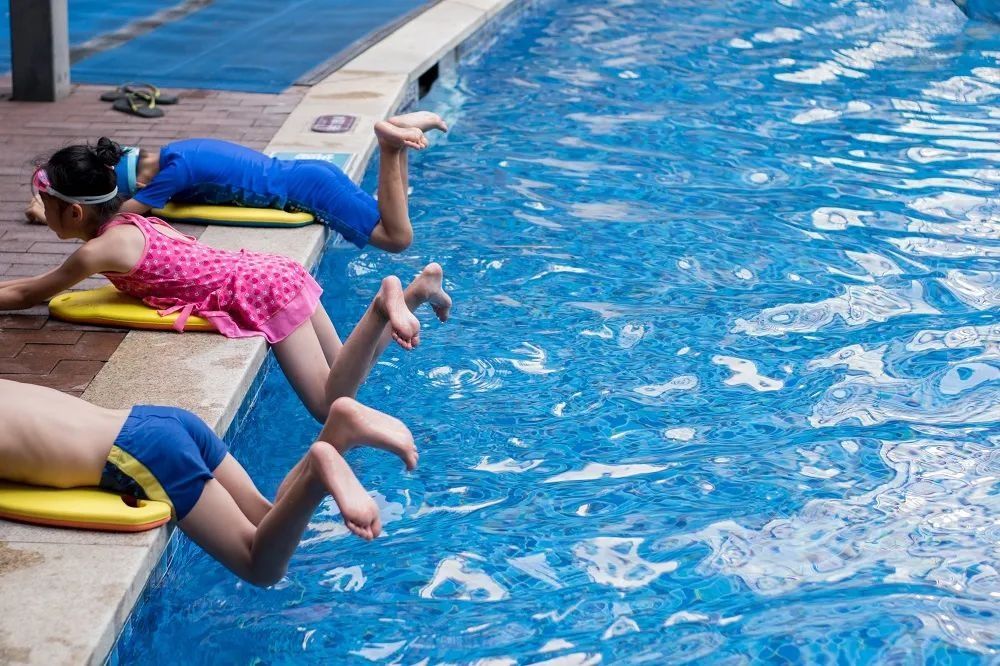
The best way to cool off in hot summer There is nothing more than swimming and playing in the water. Many parents will also enroll their children in swimming classes during the summer vacation, or go to the “Internet celebrity” water park to check in.
However, recently, the topic of “suddenly losing interest in water parks” has been on the hot search on Weibo, and many netizens have complained: “It’s too dirty”, “No more I don’t want to go.”
Some people complained about the poor water quality, low frequency of water changes, and inadequate disinfection in public places on the water.
Some people said that there was garbage floating on the water, smelly, and even posted photos directly. Floating objects such as fallen leaves, moss, toy snakes, etc. can be seen everywhere, and even spiders, frogs, etc. can be seen animal.

Many people also said that they had allergies and inflammation after playing in the water park, and suffered from various diseases.
A few days ago, some media reported that dozens of children suffered from dermatitis due to water pollution in a hotel swimming pool in downtown Jiaxing, and some were accompanied by eczema and allergic rashes.

These summer water “holy places” are really so dirty ?
I just bought a water park ticket for my child and signed up for a summer swimming class. Should I go or not?
What’s in the pool?
The water in public pools is often not as clean as we see it. According to the data of the National Health and Health Commission, the common problems of water parks and swimming pools mainly include:
1. The pool water emits a pungent smell
< span>2. Excessive urea
3. Turbid water
4. Excessive or insufficient residual chlorine
The main sources of pollutants in water are divided into two categories:
One is brought in by the human body, including sweat, urine, feces, Dander, dirt, hair, cosmetics, etc.
According to a survey of 1,436 people by China Youth Daily, the most common uncivilized behaviors include:
Do not shower before entering the pool (59.3%);
Refresh in the pool (57.1%);
Swimming Don’t wear a swimming cap (55.6%);
Don’t dip your feet before entering the pool (55.4%).
In addition, other uncivil behaviors that respondents encountered in the pool include:
Pool spitting (46.9%);
rubbing in the pool (39.9%);
contagious disease Into the pool (27.8%)…
The second is brought in by water treatment, including trihalomethane, cyanuric acid, haloacetic acid, other disinfection by-products or impurities, etc.
To prevent the growth of microorganisms and make the water appear clearer, pools are often disinfected with chlorine. Chlorine on contact with water forms hypochlorous acid, which reacts with organic matter in the pool to form chloramines.
The chemical odor of chloramines, which we call “pool odor,” can irritate people’s eyes, lungs, and skin. Therefore, the smell of the swimming pool is large, indicating that the pool water has many impurities and poor water quality.
How much urine does a swimming pool contain? In 2017, the team of Professor Li Xingfang from the University of Alberta in Canada tested water samples from 87 swimming pools and came to a clear conclusion: the average urine content of a swimming pool is about 75 liters, which is about 140 bottles of mineral water.
It can be seen that the health risks of public places on the water cannot be underestimated, and the accompanying health problems deserve our attention.
The human body’s ears, eyes, skin, etc. are easily attacked, leading to infection and a series of related diseases, commonly known as “pool disease”.
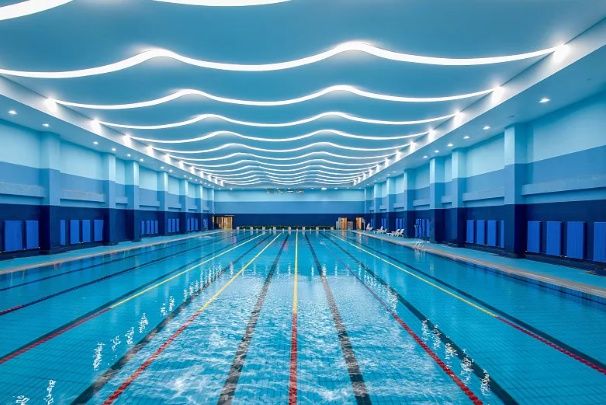
Going to play with water=all kinds of diseases?
From the moment they enter the water, children may be playing with bacteria.
As parents, we must understand and prevent the following types of diseases in advance!
Conjunctivitis
Bleaching powder for swimming pool disinfection will cause the pool water to be alkaline The conjunctiva is more adapted to the acidic environment, so after contact with alkaline pool water, the conjunctiva of the eye will feel sour. When the acid-base balance of the conjunctiva is destroyed, the disease resistance will decline, and the bacteria in the pool water will take the opportunity to enter the eyes and cause eye inflammation.
Coping methods
① Wear swimming goggles for children. If the sealing strips of swimming goggles are loose and damaged, they should be replaced in time.
② Bring your own towels and other personal items to the water park, and keep your children’s towels and clothing away from the shared areas.
③ Teach children to wash their hands frequently, wash their eyes in time, and not to rub their eyes with dirty hands.
Skin infection
Infection of skin diseases in water, on the one hand, is irritating to water The chemical ingredients in the disinfectant products are intolerant, causing skin symptoms such as allergies and itching.
On the other hand, it is in contact with certain bacteria in the water and is infected with skin diseases such as hand, eczema, folliculitis and scabies.
Coping methods
① After the child comes out of the water, be sure to take a good bath and change into clean clothes.
② Wash your child’s swimsuit and towels carefully after returning home.
③ If the child has any discomfort on the skin after entering the water, go to the hospital in time.
otitis media
Some children use their hands or cotton swabs to pick up water in their ears. , it is easy to cause ear canal injury, bacterial invasion. In addition, once you choke on water when swimming, the bacteria in the water will enter the mucosa of the middle ear cavity along the Eustachian tube, causing inflammation and causing otitis media.
Coping methods
① It is recommended to go to the hospital to clean the ears before going to play in the water.
② Let your child use special earplugs when playing in the water.
③ After the child chokes on water, press down on one nostril to blow the water out.
④ If the child’s ear accidentally enters the water, he can turn his head to one side with the ear hole facing down, gently pull the auricle, and jump on one leg at the same time to help let the water flow out, Then use a cotton swab to absorb the water from the ear canal.
rhinitis, asthma, etc.
If the child accidentally chokes on water, the nose may be Contaminated with bacteria and allergens, which can induce allergic rhinitis, asthma and other diseases.
Coping methods
① Children can wear a nose clip when swimming, but it should not be too tight to avoid damage to the nasal mucosa.
② After swimming, let the child wash his nose with salt water and blow his nose gently several times.
Private Diseases
First of all, let’s learn a little bit about the fact that playing in the water will not cause sexually transmitted diseases. But children with weak resistance, or girls before and after their menstrual period, are still vulnerable to bacterial invasion.
Coping methods
① After the child comes out of the water, take a good bath and change into clean clothes.
② It is recommended that girls do not go into the water during menstruation and for three days before and after menstruation, and wash with clean water and gynecological lotion after entering the water.
How to swim happily and safely?
In this summer, how should we choose water parks and swimming pools so that children can play with water at ease?
The editor gives you a tip for parents – choose a public swimming pool to achieve “seven views and one smell”.
Seven look
Look at the certificate. It depends on whether the public swimming pool has obtained and publicized a valid sanitary permit.
Check whether the public swimming pool’s water quality test report and self-test results are complete. The water temperature of the indoor swimming pool should be between 23 °C and 30 °C, the free residual chlorine concentration of the swimming pool water should be maintained at 0.3 to 1.0 mg/L, and the pH (hydrogen ion concentration index) should be 7.0 to 7.8.
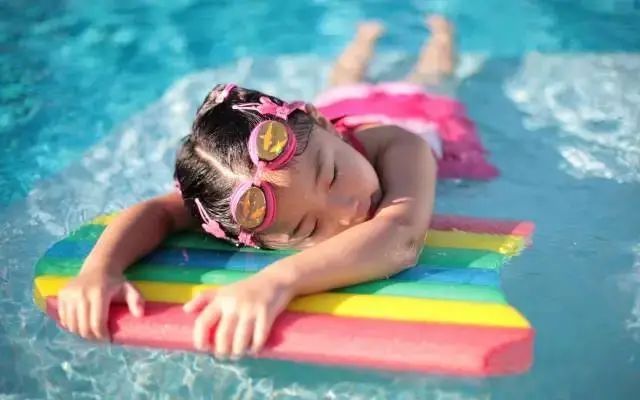
See if there is a health check post in the public swimming pool. There should be a clear sign at the entrance of the swimming pool that “it is strictly forbidden for patients with hepatitis, severe trachoma, acute hemorrhagic conjunctivitis, otitis media, intestinal infectious diseases, mental illness, venereal diseases and alcoholics to enter”.
See the facilities of the public swimming pool. Check whether the locker room, shower room, toilet, closed trash can and mechanical ventilation facilities meet the hygienic requirements, whether there is a mandatory shower device and a foot immersion disinfection pool with high residual chlorine (you can smell chlorine).
Number of people watching the public pool. Swimming venues should generally ensure a water surface of more than 2.5 square meters per person. Too many people in the pool will affect the water quality.
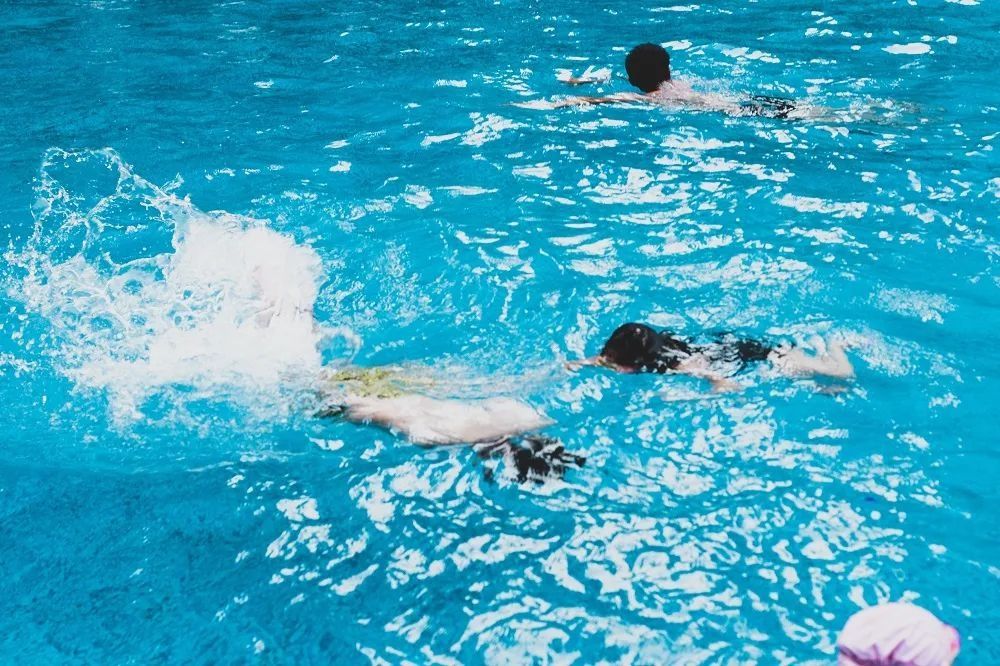
Check whether the water in the public swimming pool is clear. Whether there are floating objects in the water, whether there is sediment at the bottom of the pool, etc.
Watch the lifeguards at the public pool. Swimming pools with a water surface area of 250 square meters and below shall be equipped with at least 3 swimming lifeguards; swimming pools with a water surface area of more than 250 square meters shall be equipped with swimming lifeguards at the rate of one additional person for every 250 square meters or less in area. .
A smell
Smell the water in a public swimming pool. If the smell of the water is strong and choking, it may be that an excessive amount of chlorine-based disinfectant has been added, which can easily cause skin allergies and irritate the respiratory tract.
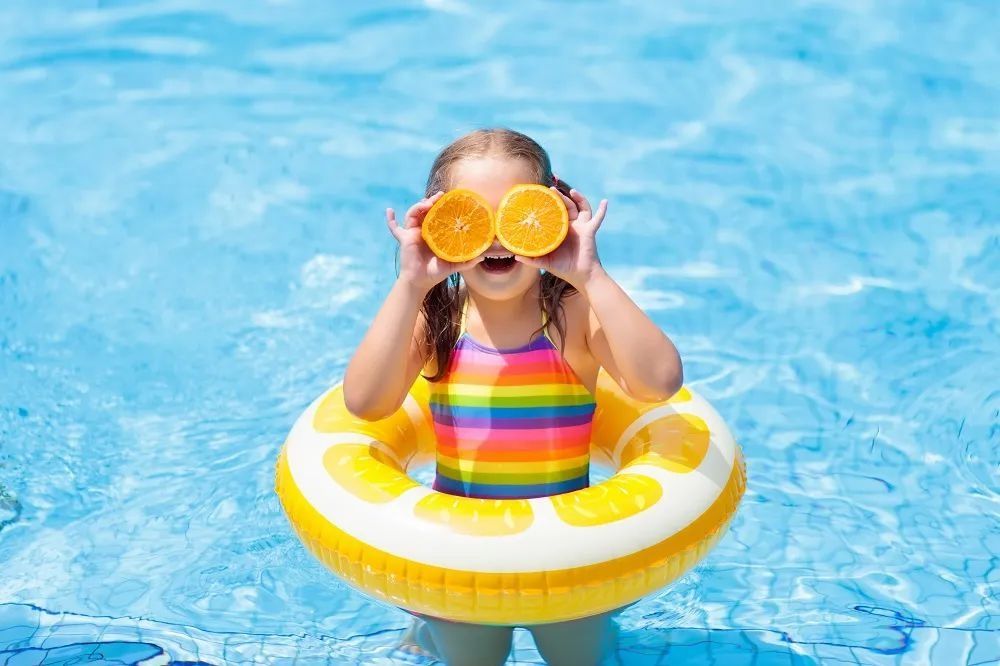
Finally, I would like to remind parents, take children to play with water must keep your eyes watching your child the whole time, don’t chat, play with your phone, don’t let your child leave you Oh, the vision!
Disclaimer: The copyright of this article belongs to the original author. If the source is wrong or infringes your legal rights, you can contact us by email and we will deal with it in time . Email address: [email protected]